International students bring fresh perspectives to research, teaching and outreach at Carolina
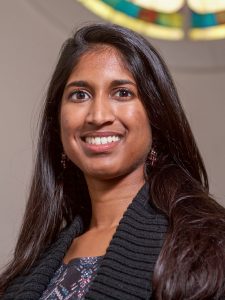
When Sertanya Reddy moved to the United States, she only knew one person. Starting a Ph.D. program at the same time as moving to a new country was challenging.
Reddy, originally from South Africa, says it can be difficult to form a community of support in graduate school because students tend to interact mostly with others in their disciplinary silos. That’s why she created an initiative to support international graduate students across the UNC-Chapel Hill campus.
“As an international student and as a graduate student, if you’re not intentional about building community, it can be challenging to feel connected to the campus community,” she says.
In the 2015-2016 academic year, Reddy worked as the international student advocate for the Graduate and Professional Student Federation, where she launched Global Grads. In fall 2016, Global Grads was integrated into The Graduate School’s Diversity and Student Success program.
The Global Grads initiative offers professional development guidance, networking opportunities and community-building events. These programmatic offerings provide international graduate students with the chance to create support structures with other students. The Graduate School also offers the Preparing International Teaching Assistants Program (PITAP) to help students develop teaching skills and build cross-cultural communication skills.
In fall 2016, there were 1,303 international graduate students on campus. Some students are funded through research or teaching assistantships, while others are funded by governments in their home countries. These students bring their experiences and perspectives into classrooms of undergraduates who may not have studied abroad. International scholars work on a variety of research projects that have an impact in North Carolina and beyond.
Reddy says she loves the community she has developed with other graduate students—both in her department and across the campus. Through her work with Global Grads, she has witnessed the power of community and the positive difference that can make in the lives of international graduate students, as well as in their academic success while at UNC-Chapel Hill.
“I’m very grateful to The Graduate School for offering the formal institutional support to keep Global Grads going for future international graduate students.”
Meet five international graduate students who are making a difference at Carolina and around the world.
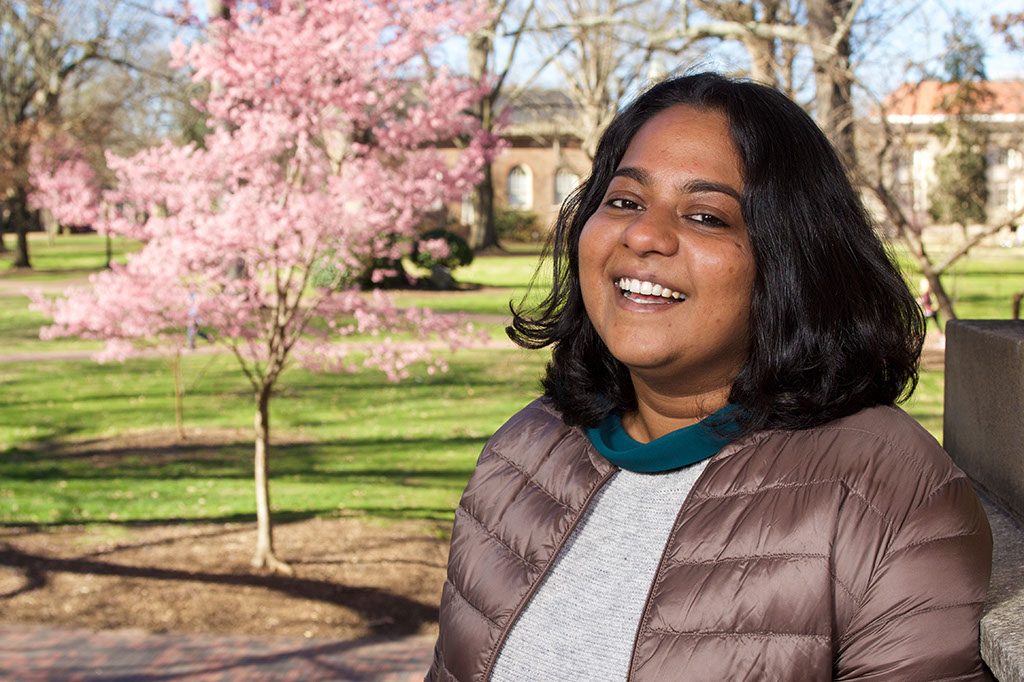
Anusha Hariharan, from India, primarily works with a collective of Dalit feminist activists in southern India. “The Dalits are the former ‘untouchable’ castes,” Hariharan says, “and have the lowest status in the caste hierarchy.”
“I work with them to both historicize the kind of activist work that they’ve done and come up with archival products to tell a history that goes against the grain of the nation state’s history,” she explains.
Hariharan spent the summer of 2016 in India working with the activists. The Department of Anthropology has a focus on collaborative work and part of her work was conceptualized with the activists, she says. The archive will have visual material and oral material, and it may have an online presence as well.
“Especially for people doing research on social justice or activism, these are very important findings for the community that you’re working with,” she says.
Hariharan is a teaching assistant, and her work for the Local Cultures/Global Forces course involved weekly recitations and directing mini-ethnographies for her students. Hariharan says students studied a local phenomenon that had global links. They collected ethnographic data to support their claims and performed an anthropological analysis.
“Given that I work on post-colonialism, identity politics and social movements, this was also integral in my training as a potential instructor a few years from now,” she says. “I am very thankful to my department for this opportunity.”
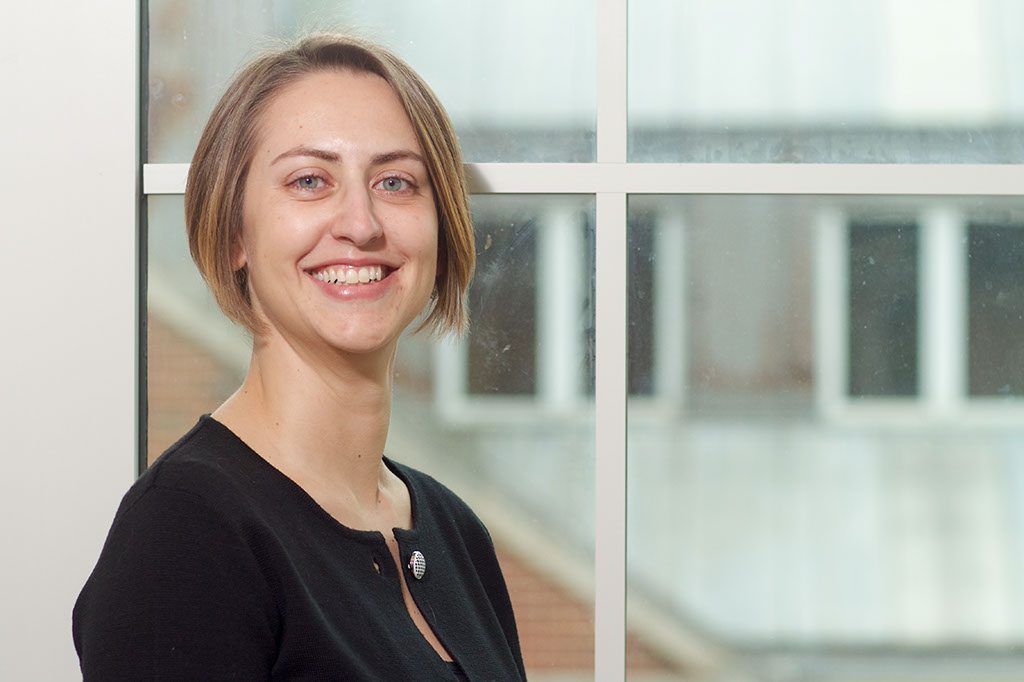
Francesca Bernardi, from Italy, studies fluid dynamics in the Joint Applied Mathematics and Marine Sciences Fluids Lab. Imagine a tube with some fluid flow in which another fluid is injected. As the fluids combine, researchers try to predict what happens as the fluid mix evolves—that’s one of the things fluid dynamics is focused on understanding.
“Being able to control the way that your chemical is delivered is very important in applications such as chemistry and the medical field,” Bernardi says.
Bernardi’s contributions aren’t limited to the lab. In addition to her research, she and a fellow student hosted Girls Talk Math, a day camp for local high school girls interested in math.
“I am very interested in the problem of the underrepresentation of women in STEM [science, technology, engineering and math] and math, specifically,” she says.
Last summer, 26 students attended the camp, which is expanding in 2017.
As an undergraduate student, Bernardi only took classes in math and science. At UNC-Chapel Hill, she has taken advantage of the opportunity to take classes in other departments. Bernardi is pursuing the Graduate Certificate in Women’s and Gender Studies. She also took two of the PITAP classes offered by The Graduate School on teaching for international students, which she says were very helpful.
Bernardi has served as a teaching assistant for a variety of math classes and has served as the instructor of record for a few classes, as well.
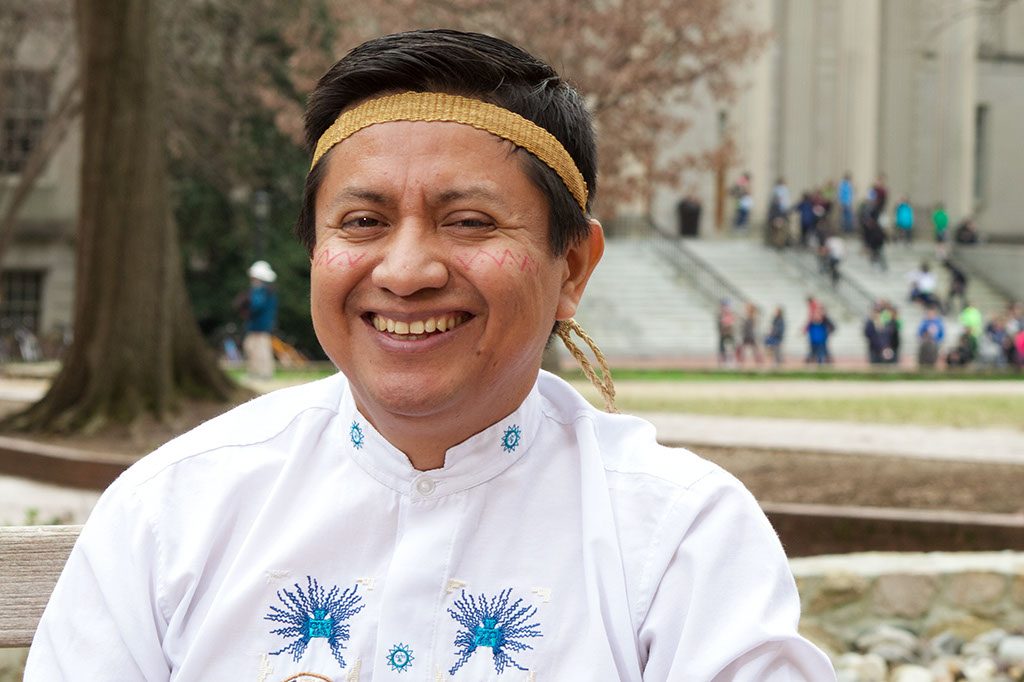
Fredy R. Grefa is a member of the Napo Runa people of the Ecuadorian Amazon. After receiving his master’s degree in city and regional planning from UNC-Chapel Hill, Grefa returned to Ecuador to work in a research park.
Grefa wanted his career to support his people in the Ecuadorian Amazon, so he returned to UNC to pursue his doctorate. Senescyt, the National Secretariat for Higher Education, Sciences, Technology & Innovation of Ecuador, is funding his education.
“I feel very fortunate to be at this university, because I am working with very excellent scholars,” Grefa says. “I think the university itself gives me the opportunity to interact with different views and to have conversations about global ideas and to have the conversation from the indigenous peoples’ view in this academic environment.”
Grefa’s research focuses on payment for ecosystem services, a new conservation initiative that provides financial or other support to indigenous peoples to protect natural resources. The challenge is complex, and his research combines geographic, ecological, political, philosophical and community issues, as well as an understanding of the natural world. “Nature is considered our home, our kin, our relative,” he says.
Grefa wants to return to Ecuador and share his knowledge with the indigenous people at the heart of these issues. He hopes to work within an Ecuadorian university, “especially doing research with and for indigenous communities.” With his doctorate, Grefa explains, he can serve as a bridge between academic and non- academic communities in the Amazon region.
“I don’t want to be selfish just getting knowledge for myself, but for all these Ecuadorians or indigenous people to promote indigenous rights and to rebuild a new society which promotes a new form of social coexistence, in diversity and in harmony with nature.”
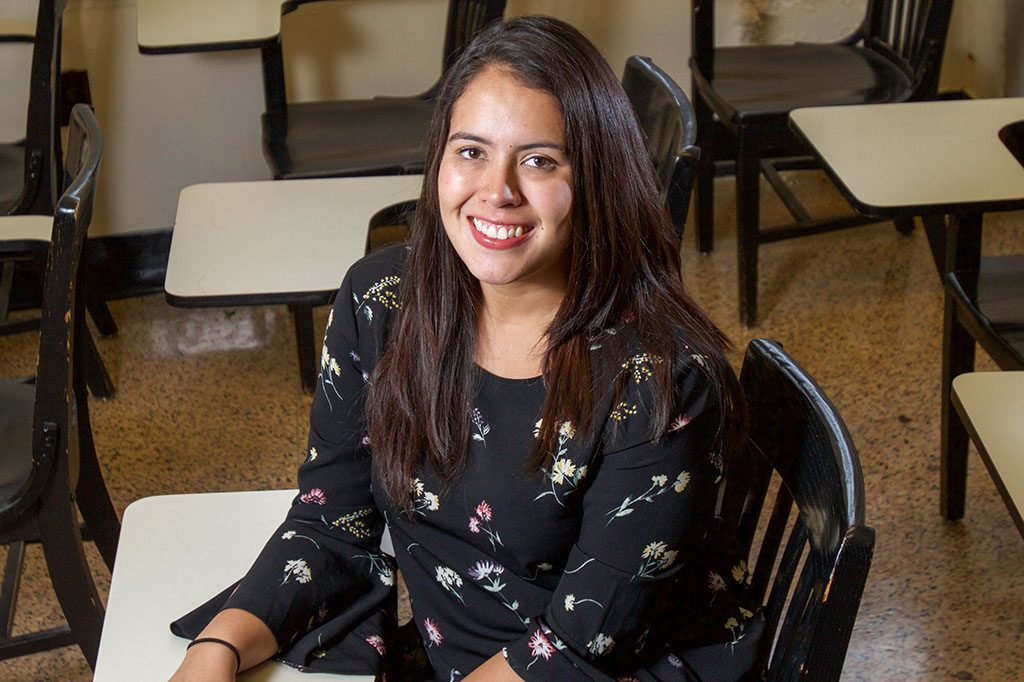
Andrea Otero decided she wanted to study economics when she was about 15 years old. She wants to think about the ways that government can improve the lives of people.
Otero, from Colombia, was working at the Central Bank of Colombia before coming to UNC. She brings her experiences of growing up in a country with a developing economy to her classes. Otero also has work experience handling data and seeing the real-life issues that come with research and data.
Otero studies applied microeconomics and she is particularly focused on labor markets.
For her dissertation, she is using Russia as a case study and wants to create a general framework to look at other countries, including Colombia. Otero’s end goal is to have a policy recommendation.
She is working on a new initiative in the Department of Economics called Women in Economics at UNC. It’s a group in which female students can build community and develop tools to fight some of the disparities that still exist in the labor market for economists.
Otero says she has enjoyed moving to Chapel Hill, which has a lot of young people. She is part of the Global Grads student advisory board, and enjoys helping international students “feel at home while studying at UNC.”
“I’ve made new friends through Global Grads, especially the other members of the board,” she says. “I also encourage my friends to go to these meetings.”
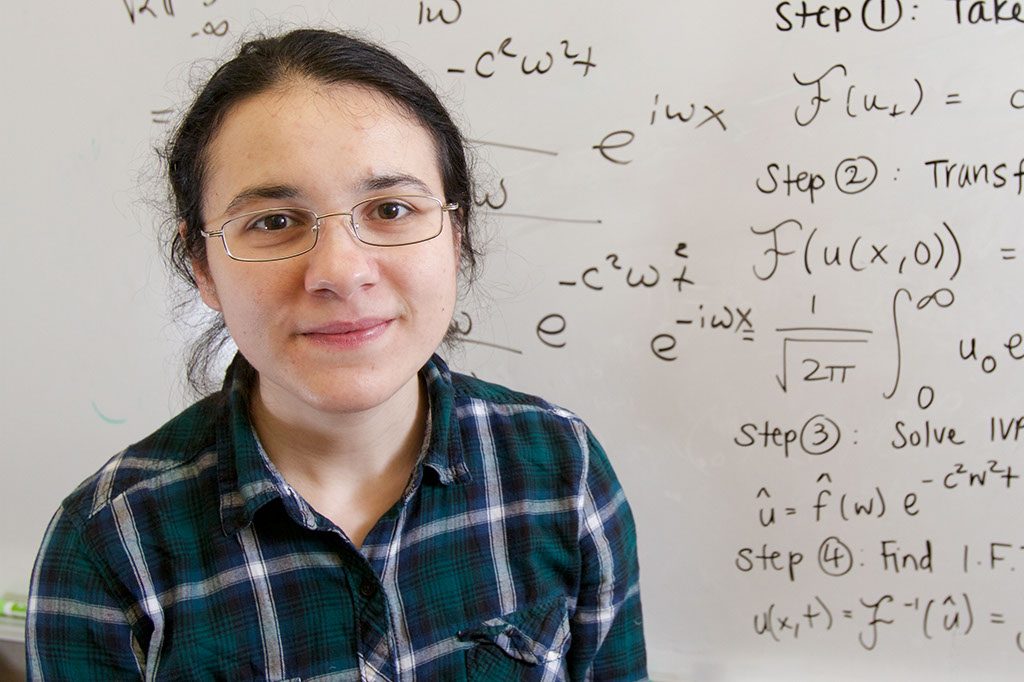
When Zeliha Kilic was studying in her home country of Turkey, she was focused on algebra. When she came to UNC-Chapel Hill, she discovered the Joint Applied Mathematics and Marine Sciences Fluids Lab and took classes from the principal investigators of the lab. Now, Kilic researches fluid dynamics.
After graduating, Kilic wants to stay in academia in a position that balances teaching and research.
“Teaching is good for community,” she says. Kilic received a 2017 Tanner Award for Excellence in Undergraduate Teaching by Graduate Teaching Assistants.
At UNC-Chapel Hill, Kilic has taught algebra for non-science majors. These students may not initially be very interested in math, she says, so she tries to push them to participate in group activities so they don’t feel alone.
“I’m trying to make it so they are not going to feel lost,” Kilic explains.
Kilic’s family lives in Istanbul, which has a population of 14 million people. Adjusting to Chapel Hill was hard, she says. But Kilic found a host family and celebrated Christmas with them.
She was inspired to apply to UNC-Chapel Hill because a mathematician she admires, Arzu Boysal, also studied at the university.
“She makes up all these beautiful theorems,” Kilic added. “If this happened to her, it has got to be happening to me in the end.”
Kilic is also grateful for the support she has received from Aziz Sancar, Nobel laureate and Sarah Graham Kenan Professor of Biochemistry and Biophysics at UNC-Chapel Hill.
Videos and more information for global students:
Welcoming UNC-Chapel Hill’s International Graduate Students
Global Grads Initiative
